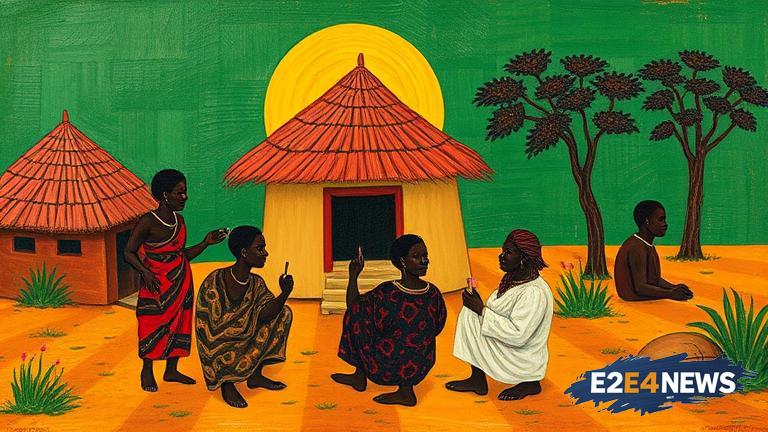The Igbo community has been called upon to embark on a cultural revival, with a focus on preserving their rich cultural heritage. This appeal comes at a time when many traditional practices and customs are being eroded by modernization and globalization. The Ndigbo, as they are commonly referred to, have a unique cultural identity that is worth preserving for future generations. Their cultural heritage is a vital part of their history and identity, and it is essential that they take steps to protect and promote it. The Igbo community is known for its vibrant culture, which includes traditional music, dance, art, and literature. However, many of these cultural practices are being lost due to the influence of Western culture and the lack of interest among younger generations. To address this issue, community leaders and elders are urging the Ndigbo to take an active role in preserving their cultural heritage. This can be achieved through various means, such as cultural festivals, traditional ceremonies, and educational programs. By reviving their cultural heritage, the Igbo community can strengthen their sense of identity and belonging, as well as promote cross-cultural understanding and appreciation. Furthermore, preserving their cultural heritage can also contribute to the economic development of the community, through tourism and cultural exchange programs. The Ndigbo have a rich cultural legacy, which includes the works of famous writers, artists, and musicians. Their cultural heritage is a source of pride and inspiration, and it is essential that they take steps to protect and promote it. In addition, the Igbo community can learn from other cultures that have successfully preserved their cultural heritage, such as the Japanese and Chinese communities. By studying their approaches and strategies, the Ndigbo can develop effective methods for preserving their own cultural heritage. Overall, the cultural revival of the Igbo community is a necessary step towards preserving their unique cultural identity and promoting cross-cultural understanding and appreciation. The Ndigbo must take an active role in preserving their cultural heritage, and community leaders and elders must provide guidance and support to ensure the success of this endeavor. With a strong cultural foundation, the Igbo community can build a brighter future for themselves and their children. The cultural revival of the Igbo community is not only important for the community itself but also for the wider society, as it can contribute to the rich cultural diversity of the world. In conclusion, the Ndigbo must prioritize the preservation of their cultural heritage, and work together to promote and protect their unique cultural identity.
